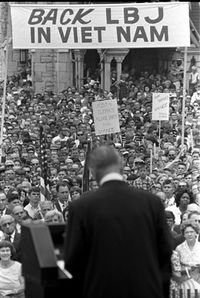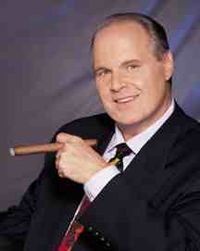Think of this as Volume 17, Number 42 of the newsletter I have written weekly since March, 1997. Enjoy.
 In the days after the government
In the days after the government
shutdown everyone on the TV was asking, “Was it worth it?”
My answer? Hell, yes. It was worth it.
Despite the estimated $40 billion in
economic activity that didn't occur?
Despite 74% of people saying
they want the whole Congress gone, and the President's popularity
falling to an all-time low? Despite the fact that this was “only”
a three-month respite in the Congressional war?
Yes. And it was damned cheap at that.
 We did not go to war with each other,
We did not go to war with each other,
as we did during the 1960s. There were none of the riots, police,
labor or racial, characterizing the Progressive era. The Great
Recession was half the size of the Depression, and there has been no
World War, let alone a Vietnam.
This latest crisis over the debt
ceiling and government shutdown will be seen, in retrospect, to have
been as politically decisive as any of those past events. Because out
of it has come a new consensus, an Obama Consensus. This can be
summed up in the almost universal cry that came from voters
interviewed late last week – “can't they all just get along?”
I'm not saying everyone agrees with
President Obama, on anything. I'm saying there's a new consensus that
the people in our government have to work together, have to deal, and
move forward on the nation's problems without all the mishigas of the
last several weeks.
Sure. The media is trying to bring it
back. They're saying all the incumbents are going to win, that the
House remains in the thrall of Teahadistan, that nothing is
fundamentally different.
But much is.

people who are outside this consensus. Ted Cruz is outside it. Sarah
Palin is outside it. Rush Limbaugh is outside it. A majority of the
Republican caucus in the House is outside it, as are a host of
outside groups like Heritage Action and FreedomWorks. Some very rich
people, like the Koch Brothers, are well outside it. Right now, as
many as three voters in 10 are outside the new consensus.
But that's not enough to overcome the new consensus. And by their
actions, these people and groups have shown just how far outside the
consensus they are. The people, the “Silent Majority” as Nixon
called them, won't forget.
We demand that you get along. We demand
you do your jobs. We demand, most of all, that you respect the
authority of our police and our soldiers, that you be a good citizen,
that you not revolt against your own country, even in its name.
I don't think that's too much to ask.
The media seems to think it's a big ask, but it's really a very small
ask. It's similar, as I've written, to what we demanded of young
people in the early 1970s, and how we get it now will be most like
how we got it then.

the final agreement ending the shutdown learned a lesson. Those other
people are crazy. If you want to stay in Washington, you need to walk
away from them when they go crazy, because that kind of crazy rubs
off. These Republicans will deal. We won't have another shutdown.
We'll have a budget, one that's far more conservative than I'd like,
but something we can live with until next November.
Then some of the Teahadists will face
primaries. Some will lose, others will be chastened. Still others
will be beaten in the general election. There will be some
spectacular upsets, because it's the people who are the new
consensus, and when 70% of the people are going in one direction,
it's suicide for politicians to stand in their way.

and years, some of the people most active in this Teahadist movement
will drift away. The money will dry up – FreedomWorks is already on
its last legs. Just as the 1970s became the “me” decade, and
former anti-war marchers went into business, or entertainment, or
even into accounting, so it will be here. The apocalypse will not
come and in time people will stop expecting it. And remember, this
cohort of demonstrators are already older than most people – some
are probably the same folks who did those anti-war dances a
generation ago.
The political temperature will cool.

Street will enforce its will on the Republican caucus. The losses in
2014 will be limited by this, but whatever the final outcome, the
Congress greeting President Obama in 2015 will be much more compliant
than the current bunch. Republicans will become a more loyal
opposition – loyal to their country, and to its well-being, willing
to make a deal.
The most important change will come in
the assumptions that politicians, reporters and pundits will bring to
the Sunday talk shows. Cool will gradually replace hot. The Democrats
will be seen as fundamentally unified, the Republicans as divided –
just the opposite of the way the last generation saw things. Yet
these same pundits will act as though nothing has changed. They'll
just adapt, and be gradually replaced by men and women steeped in how
things will be going forward.

President, she can be the next President. She, and her successors,
can validate the new assumptions, the idea that we may disagree but
in the end we come together for the good of the country. Democrats
will be the majority, although they can always lose elections, even
the Presidency. Republicans will be the minority party, gradually
leaning against what's going to happen, saying “yeah, but.” Yeah,
we understand the need for regulation, but we can do it better. Yeah,
we understand the need to address climate change, but let's use the
market. Yeah, we know the Second Amendment is no more absolute than
the First, Fifth or Fourteenth, but let's go gently.

nation. You go through a fire, you learn, and you decide you're not
going there again. Ted Cruz will burn out, much as Andy Griffith's
character did in Elia Kazan's “A Face in the Crowd.”
The Republican spin on all this will be
that Washington doesn't matter as much as it did, that the business
of America is business, that what happens in industry, and in the
states, and in the culture, and in small towns all over the country
is what we're all about.
Democrats will become what they were
when I was a kid, the natural party of government. The deficit will
decline – it may even disappear for a time. Deals will be made, and
compromises struck. Life will go on.
There is a cost to every crisis, and
this one has had its cost as well. The thousands lost in Iraq, and
Afghanistan, one war based on lies and one without end, are part of
the cost. The huge deficit built over the last 12 years will mean
higher inflation and slower growth for half our childrens' lives, and
this will give them many of the beliefs and assumptions we saw in our
parents' generation. That's part of the cost, too.
But compare that to Vietnam and
everything else that came to this country during the 1960s. Compare
it to the Great Depression and World War II. Compare it to the riots
and upheavals of the Ragtime era, or the Civil War.
It's dirt cheap.

on America, and brings to it leaders sufficient to their times, just
when they're needed.
Barack Obama will go down in history as one of
this country's great Presidents, and while we'll debate exactly where
he falls, we'll gradually realize how damned lucky we were to have
him.
If he can get us through this crisis
without further damage, if he can then survive to the end of his
term, a 56-year old political legend living and laughing among us,
won't that be amazing?











You are such an optimist! (And it’s so good to hear it!)
You are such an optimist! (And it’s so good to hear it!)